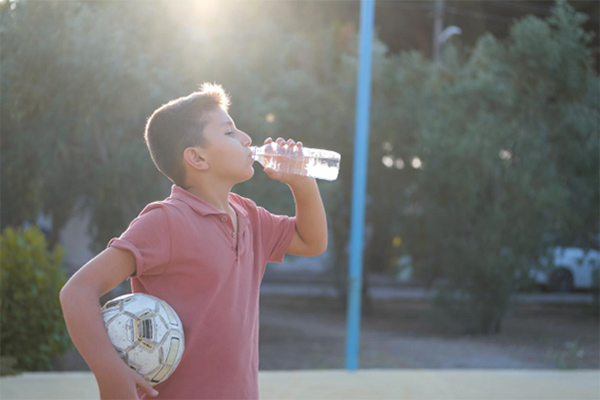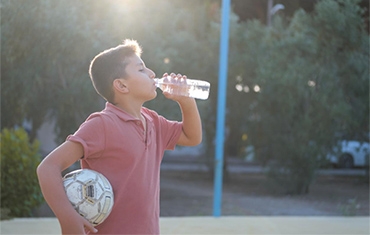
It’s easy to overlook hydration during a long practice or intense game, but for young athletes, staying hydrated is more than just about performance. It can directly impact injury risk, muscle recovery, and joint stability. Let’s explore how dehydration increases the likelihood of injuries like ACL tears and rotator cuff strains, and what parents and athletes need to know to stay safe.
Why Hydration Matters for Athletic Performance and Joint Health
Water plays a vital role in regulating body temperature, maintaining joint lubrication, and transporting nutrients to muscles and tissues. When an athlete becomes dehydrated, their muscles can fatigue faster, and their coordination and reaction times may suffer, all of which contribute to an increased risk of both acute and overuse injuries.
For athletes engaged in repetitive motions or high-impact sports, hydration also helps preserve the structural integrity of tendons and ligaments, like those found in the rotator cuff and ACL (anterior cruciate ligament).
Dehydration’s Role in ACL and Rotator Cuff Injuries
Two of the most common injuries among youth athletes are ACL tears and rotator cuff strains. The ACL is a major stabilizing ligament in the knee, and the rotator cuff is a group of muscles and tendons that stabilize the shoulder. Both areas are highly vulnerable to injury during sports that involve pivoting, jumping, throwing, or overhead motions.
Dehydration increases muscle fatigue, which reduces the body’s ability to maintain proper form and control. When movement becomes sloppy, the stress on the joints intensifies. A tired athlete with stiff, dehydrated muscles and joints is far more likely to misstep or land awkwardly, raising the risk of serious injuries like an ACL rupture or rotator cuff tear.
Signs of Dehydration to Watch For
Parents, coaches, and athletes should be aware of early signs of dehydration, including:
- Dry mouth or extreme thirst
- Headache or lightheadedness
- Fatigue or muscle cramps
- Decreased coordination
- Dark-colored urine
Even mild dehydration can impair physical performance and recovery, so it's important to encourage consistent fluid intake before, during, and after activity.
Injury Prevention Starts with the Basics
Preventing orthopedic injuries in young athletes isn’t just about braces or warm-ups, it’s also about what happens off the field. Adequate hydration, proper rest, and early intervention when discomfort begins are all essential to keeping joints strong and healthy.
If your child has experienced joint pain, instability, or a sports-related injury, book an appointment with us to explore minimally invasive treatment options and personalized recovery strategies.
AUTHOR: Geoffrey Van Thiel, MD, is a board-certified orthopedic surgeon specializing in sports medicine treatments of the hip, knee, and shoulder, with a focus on compassionate, cutting-edge care. Dr. Van Thiel’s commitment to athletics and an active lifestyle is evident in both his personal belief that activity leads to better health and his involvement with the Chicago Blackhawks Medical Network, AHL Rockford IceHogs, and US National Soccer Teams.





